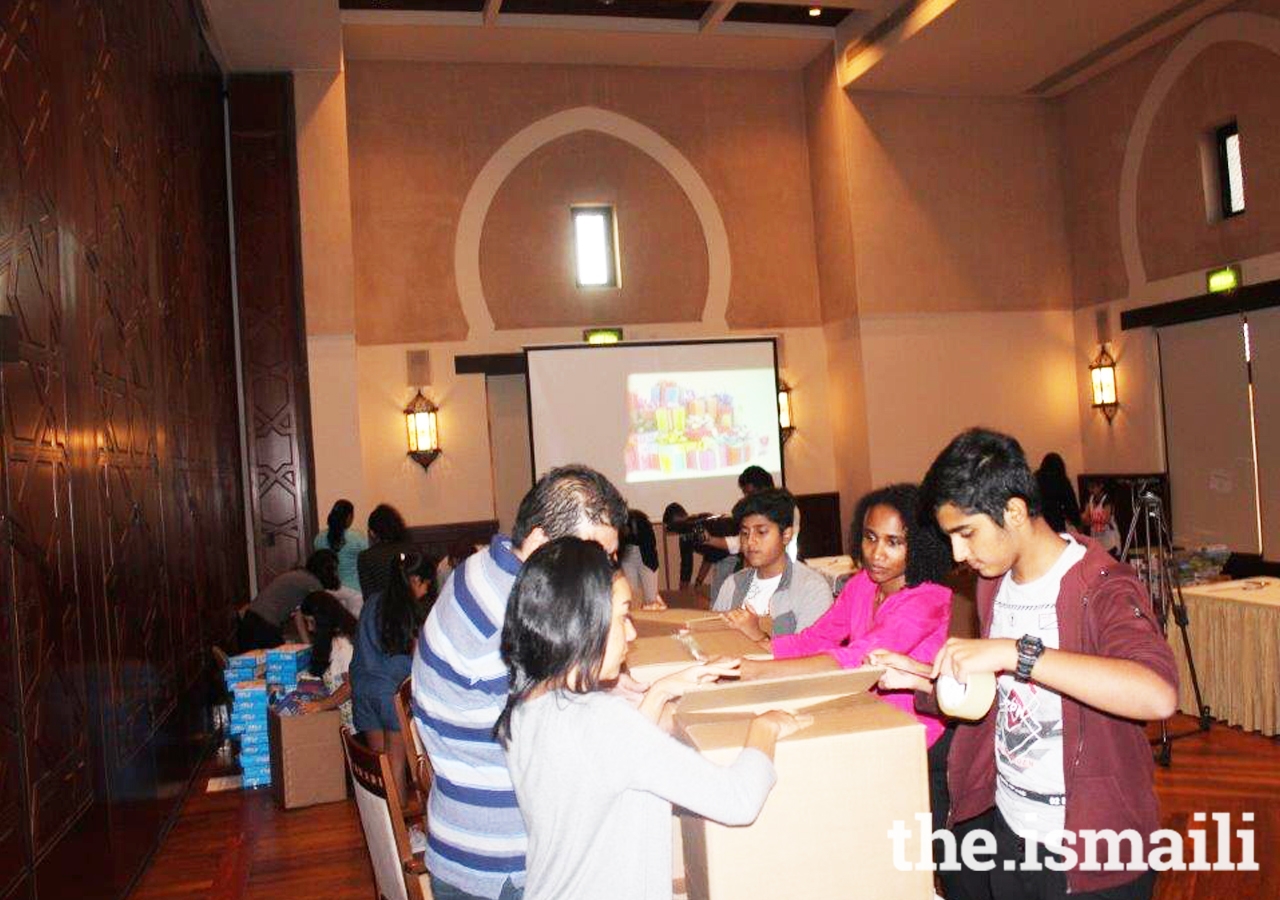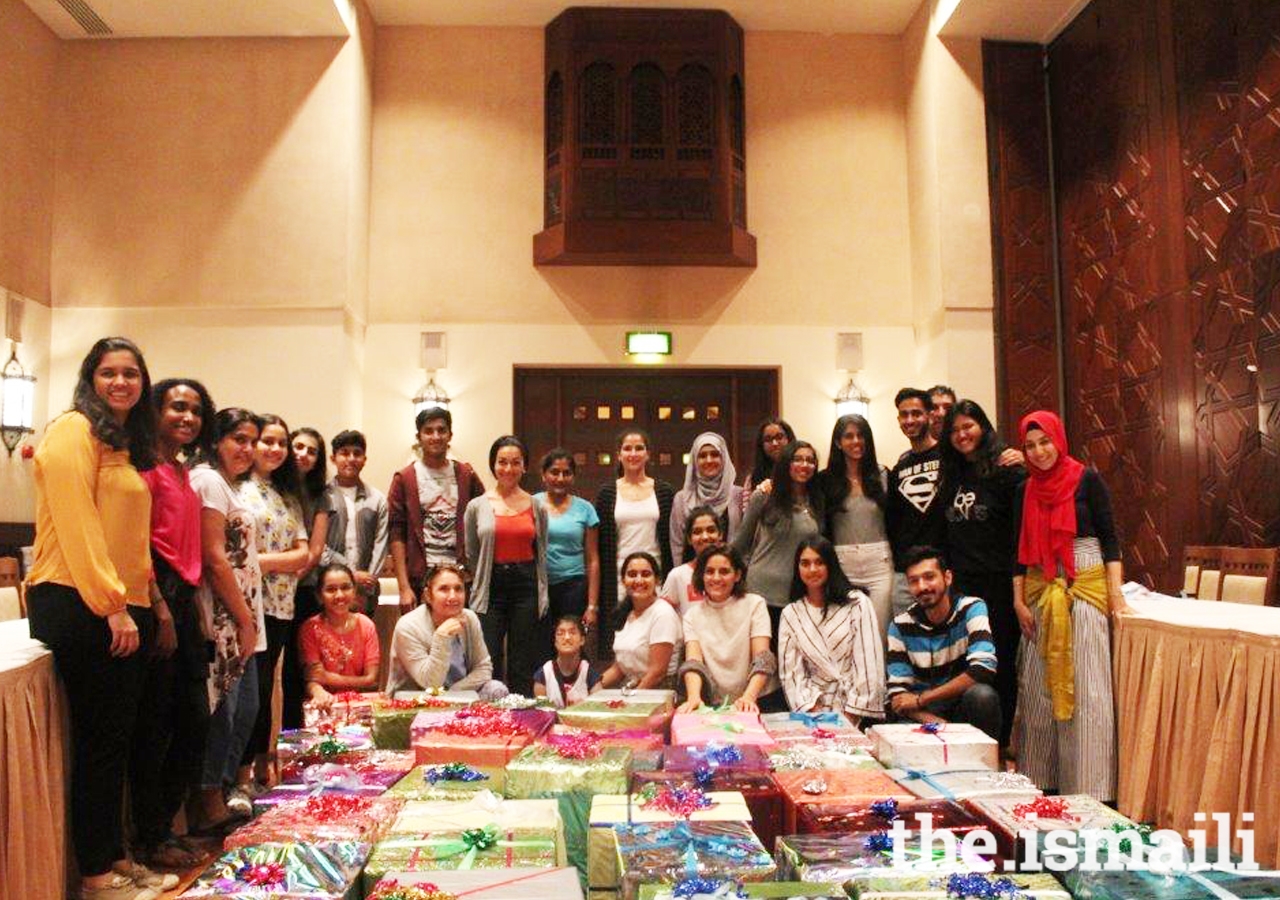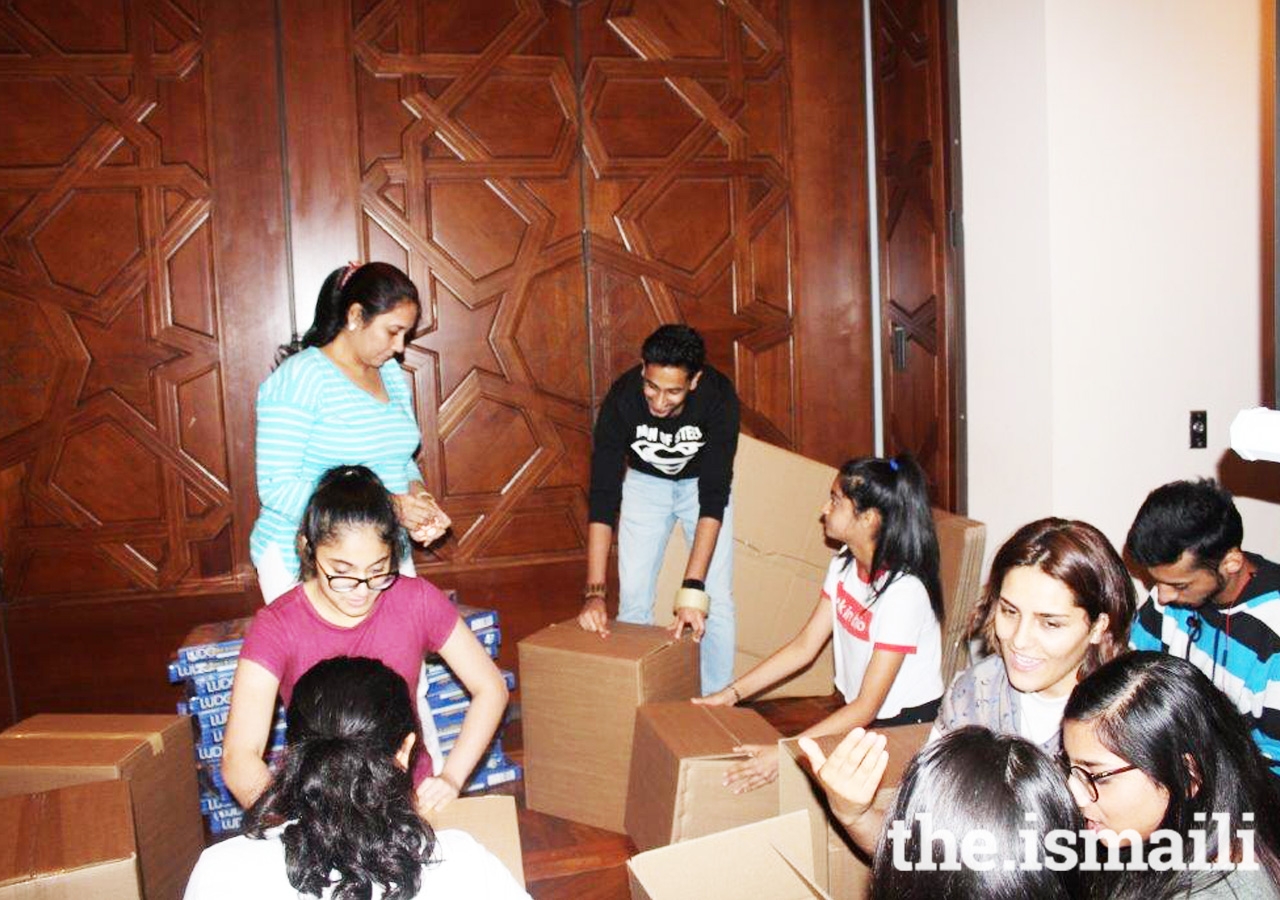The atmosphere was filled with compassion and gratitude as Noha Mahdi, founder of the Mawada Project, made a presentation about the plight of underprivileged children within the MENA region, and globally, at the Ismaili Centre Dubai on 10 November 2018.
This was an interactive session where Noha Mahdi encouraged participation from the audience. Emotions were heightened during an exercise called 'cross the line’, where all the participants were asked to stand on one side of a rope placed on the ground. They were then asked to step over the rope or move back to their original position, depending on their responses to the questions posed. Designed to indicate how privileged the participants considered themselves to be, there were a range of questions dealing with basic needs, education, personal growth opportunities, and emotional well-being. The more often they stepped across the line, the more privileged they realised they were. This was a powerful experiment that invokes compassion, gratitude, and empathy for those without. A question that caused reflection amongst almost every person was “Do you miss someone all the time?” This was a profound reminder to the audience of the plight of the 153 million orphans in the global community (UNICEF April 2018).
Following study for a Masters’ degree in Educational Neuroscience, Noha Mahdi established the Mawada Project to help youth in the UAE develop essential values and building skills among society, encouraging everyone to be responsible and to make a contribution. She commented, “It is only through direct human contact and social interaction, through service, that one develops emotional skills such as tolerance, respect, kindness, and the recognition of how to manage their own emotional awareness. Our programmes empower learners to build life skills, character, and values to become empathetic leaders of tomorrow, and create hope for a just world.”
The message of the Mawada Project reminds us of the ethics of our faith. Indeed, in his address at Brown University in 1996, Mawlana Hazar Imam said, “the right to hope is the most powerful human motivation I know.” He has frequently reminded us of the obligation of the privileged to help the underprivileged, as giving is a pillar of Islam.
The Gift Preparation Session was an impactful and emotional journey of hope, especially when participants were introduced to the gift recipients through a digital presentation. Furnished with additional understanding, new knowledge and recognising the feeling of making a difference, more than 30 participants organised, sorted and wrapped 42 boxes of gifts donated by the Mawada Project. “They will value our 2-3 hours more than we do” reflected Salihah Tejani. “It is the cycle of giving. It brings us personal happiness as well,” added Alyssa Nizamuddin.
In a world of rampant fragmentation and materiality, it is easy to feel overwhelmed and do nothing. “However, if we approach service and social responsibility as an exchange, rather than a one directional transaction, we create an empowering process that completes the giving field for both parties. Those we may see as underprivileged [children] have something to give us as well. We just need to remember that each one of us has a role to play, even if it is a half hour of conversation to bring someone joy, which may possibly change their lives” advises Noha Mahdi.
“We are pleased to host this event at the Ismaili Centre Dubai as the purpose of the building and ethos of the Ismaili community is aligned with the goals of The Mawada Project,” said Shirin Mehri, Mawada Project growth manager. “To see young people willing to give back with such joy is amazing. The Ismaili community is an inspiring positive example for us all” added Fatima Ali, another participant at the event.
For more information on the Mawada Project and reaching out to underprivileged children in the UAE, please visit http://www.themawadaproject.org/









